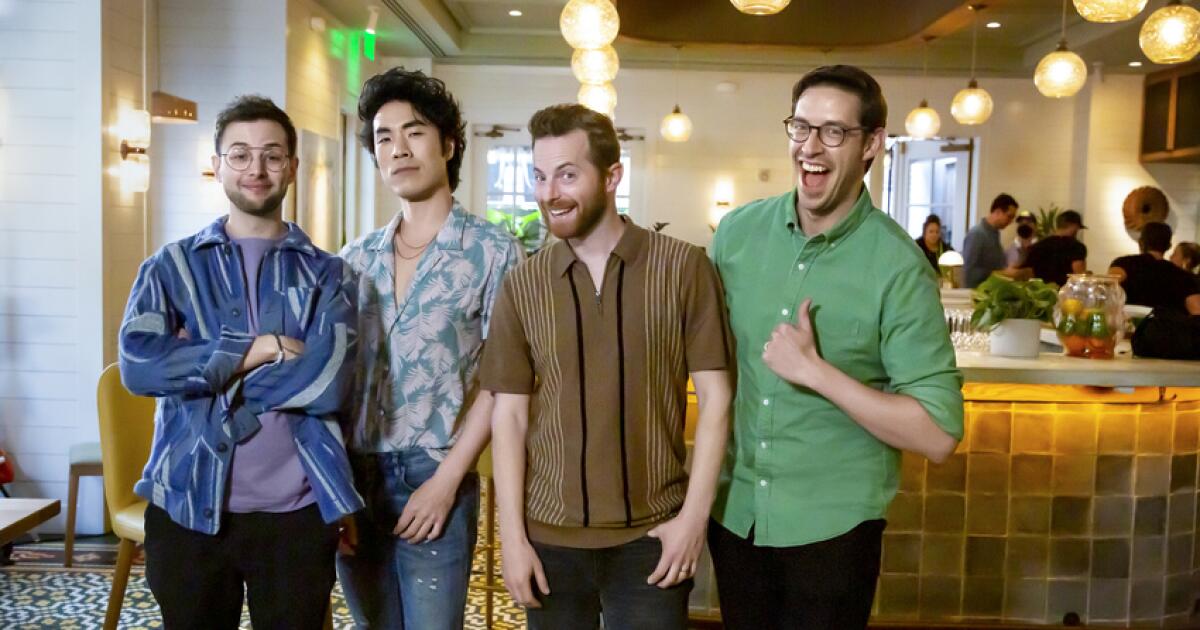A man who lives in Los Angeles has a girlfriend for almost every day of the week, but what sets his situation apart from the norm is the transparency and consent involved: all of his partners are aware of each other and have mutually agreed to the unconventional relationship.
The journey of the 33-year-old, who goes by the name LX Xander, into polyamory— having romantic or sexual relationships with multiple partners at the same time—began seven years ago when he realized that monogamy did not resonate with his understanding of love and relationships.
“Players are playing a game and lying, and misleading, but all of my cards are on the table,” he told Newsweek.
TikTok/@lxxander.thegr8
The unconventional practice can get a bad name but according to research, Americans are curious and keen to give it a go. Dr. Amy Moors, a psychology assistant professor at Chapman University and Kinsey Institute Research Fellow, published a study in June 2022. She found that the likelihood of someone wanting to engage in polyamorous relationships in the U.S. is about 1 in 6.
Moors also highlighted an interesting comparison in her research on polyamory: she pointed out that this figure is roughly the same as the number of Americans who own a cat. Additionally, the prevalence of people who have experienced polyamory is 1 in 9, comparable to the rate of Americans with a graduate degree.
While many people may wonder how Xander juggles his time, a 2022 YouGov study previously revealed that more than half of American couples argue over the amount of quality time spent together. However, Xander—who divides his time between five women—has no complaints.

Instagram/@lxxander.thegr8
“I am constantly on my laptop and phone for work so it doesn’t feel like it’s a task to communicate,” he told Newsweek. “Plus, I am good at multitasking so it’s easy for me to text and reply.”
He explained that he prioritizes one-to-one time with the women, which may involve a date or relaxing at his place.
“Most of the time, we do hang out as a group,” he told Newsweek. “However, I do spend two or three days a week on my own as I need to get work done.”
At the age of 26, Xander left a monogamous relationship, acknowledging that it did not align with his authentic self.
“People have different interpretations of what a relationship is, the truth is, I am always attracted to more than one type of person,” told Xander.

Instagram/@lxxander.thegr8
One of the women declined to comment but Newsweek spoke to four of his other girlfriends, Avery, 30, Dani, 28, Nia, 25, and Vee, 25, all of whom did not wish to share their surnames, but can be seen in the pictures.
Avery has been with Xander the longest as their relationship is coming up to the three-year mark. And the other women have been in his life for less than a year.
The women discussed how they navigate feelings of jealousy within the relationship, and they’re not alone.
In 2015, a YouGov survey of almost 1,000 U.S. adults found that 31 percent described themselves as a ‘jealous’ person when in a romantic relationship.
But Avery told Newsweek: “Jealousy is a human emotion that I feel just like every other human.”
Nia added: “I definitely believe you can love more than one person at a time.”
Vee shared how she deals with the feeling, saying: “I just keep in mind my value and worthwhile knowing we are equal and all have our own unique differences.”
“Jealousy hasn’t been an issue,” agreed Dani, who added: “Not to say that it couldn’t be in the future. Jealousy is a normal human emotion that we’ve all experienced at one point or another. But for me, it all comes back to being present.
“Worrying about the person and the moment you’re in, rather than what the other person is doing with whomever else when they’re not with you.”
This mindset is echoed by Xander, who finds monogamy restricting.

Instagram/@lxxander.thegr8
“I like to feel like I have complete freedom and that I am choosing to spend time with someone, rather than feeling obligated to.
“Traditional relationships are based on creating expectations that are verbally contracted to someone. It’s like a sense of obligation and binding and that in itself is ruining it for me.”
He explained that he communicates with the women daily but there’s no pressure on either side.
When asked about his thoughts on being in love, Xander explained: “I don’t like the terminology in love —it sounds like Disney to me.
“I give everyone I am involved with love and I feel love for them, we exchange love.
“But I know plenty of people who say they’re in love but then they do something that I don’t believe someone could do if they love someone.”
Newsweek previously spoke to Angelika Koch, a relationship expert, about the complexities of polyamorous relationships.
“An open relationship can bring excitement to the bedroom and can allow your partner to learn new things through other partners, but there can also be the other side of jealousy beginning to build, as well as guilt.
Koch, who works at Taimi, a fully inclusive LGBTQ+ dating app, added: “So long as there is healthy and open communication and boundaries being respected, an open relationship can be a positive and explorative experience allowing the couple to feel closer together than they were. But if healthy communication does not happen and boundaries are not respected, it can lead to the relationship having even more troubles.”
Critics often label Xander’s arrangements as irresponsible or a guise for infidelity, but he and his partners disagree. They argue that their model of polyamory is a form of ethical non-monogamy that prioritizes communication, consent, and emotional integrity.
“People are quick to throw accusations at me like I am a player but anyone who is with me will know that I am very sweet, communitive, neutering, and affectionate,” Xander added.
Have you noticed any red flags that made you end a relationship? Let us know via [email protected]. We can ask experts for advice, and your story could be featured on Newsweek.
Uncommon Knowledge
Newsweek is committed to challenging conventional wisdom and finding connections in the search for common ground.
Newsweek is committed to challenging conventional wisdom and finding connections in the search for common ground.















